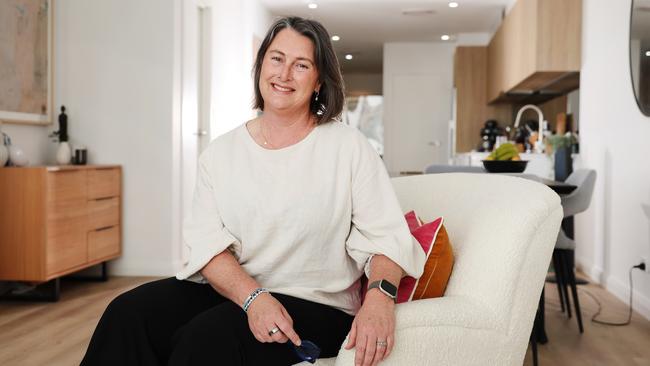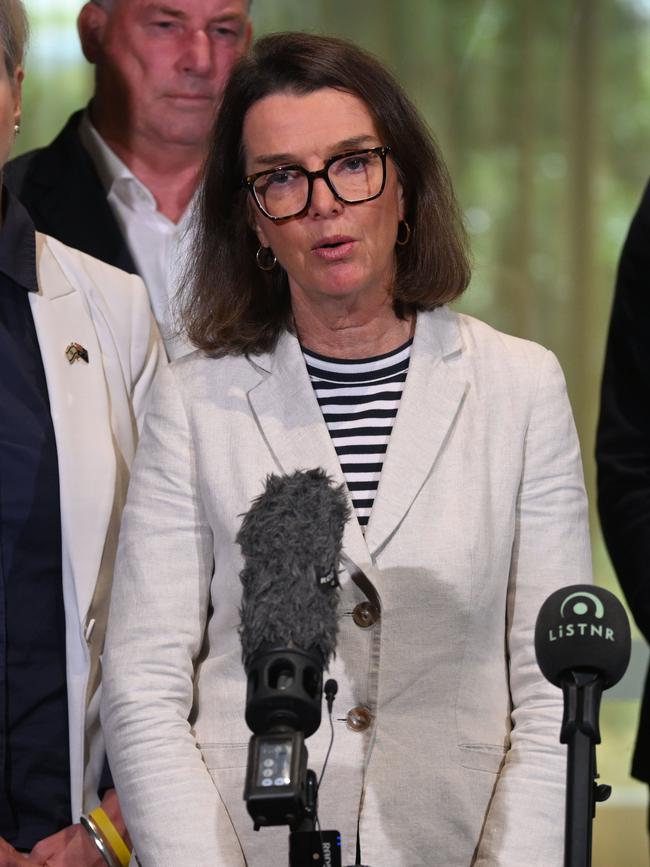Women experiencing menopause deserve flexible work and GPs must be better trained, inquiry finds
Doctors should be better educated in perimenopause and menopause with financial incentives to encourage more GPs to undertake extra training, while women suffering troubling symptoms deserve the right to seek flexible working arrangements, a landmark inquiry has found.
National
Don't miss out on the headlines from National. Followed categories will be added to My News.
Doctors should be better educated in perimenopause and menopause with financial incentives to encourage more GPs to undertake extra training, while women suffering troubling symptoms deserve the right to seek flexible working arrangements, a landmark inquiry has found.
A senate committee looking at issues related to perimenopause and menopause has made 25 recommendations to improve primary health care and workplace supports for women, after receiving hundreds of submissions highlighting serious failings.
About 160,000 Australians enter menopause each year, with symptoms including vertigo, muscle and joint pain, memory lapses, sleep disorder, hot flashes, mood changes, headaches and difficulty concentrating.
The committee heard doctors rarely receive more than a single lecture on the subject during their medical studies, leading to women being misunderstood or ignored when they sought help.
In addition to bolstering university curriculums and financially incentivising GPs to upskill later in their careers, the committee recommended the government consider if a subsidised “mid-life health check” was needed to ensure greater access to primary care for women during the menopause transition.

Changing the Fair Work Act to ensure women can “access flexible working arrangements during menopause,” was also recommended though the committee stopped short of backing unions’ calls for designated additional sick leave.
The government should also look at ways to make menopausal hormone therapy (MHT) items “affordable and accessible,” including potential domestic manufacturing or encouraging pharmaceutical companies to list a broader range on the Pharmaceutical Benefits Scheme, while the Therapeutic Goods Administration should address the shortages of MHT items in Australia.
Menopause advocate Sonya Lovell said she was encouraged by the recommendations, including for a national menopause and perimenopause awareness campaign.
“The recommendation that this is designed in consultation with people with lived experiences is a testament to everyone that contributed to the inquiry through written submissions and those who bravely shared their lived experience in person at the hearings,” she said.
Ms Lovell also welcomed the report recognising the need for research to establish a” comprehensive evidence base about the impacts”.

Labor Senator and deputy chair of the inquiry Marielle Smith said the inquiry had heard “loudly and clearly” that women experiencing menopause were being let down in two major ways.
“When they have gone to see their doctor, too often they’ve felt unheard or dismissed, and when it comes to work, where small changes could make a massive difference, stigma has stopped them from getting the adjustments they need,” she said.
Ms Smith said menopause wasn’t an “optional part of ageing” and good quality primary care shouldn’t be either.
She said there were also small changes that could happen in the workplace that would make a “massive difference for women who experience troubling symptoms” like breathable uniforms, desk fans or flexible start times.
“Having workplace policies in place, and an ability to request flexible working arrangements, could be transformative for those women who require it,” she said.

Coalition health spokeswoman Anne Ruston said it was important to recognise the difficulties faced by Australian women dealing with menopause and perimenopause, and committed to considering the report’s recommendations.
“We want to ensure that women across Australia can access care that is not only affordable, but also understands their experience and needs,” she said.
More Coverage
Originally published as Women experiencing menopause deserve flexible work and GPs must be better trained, inquiry finds





